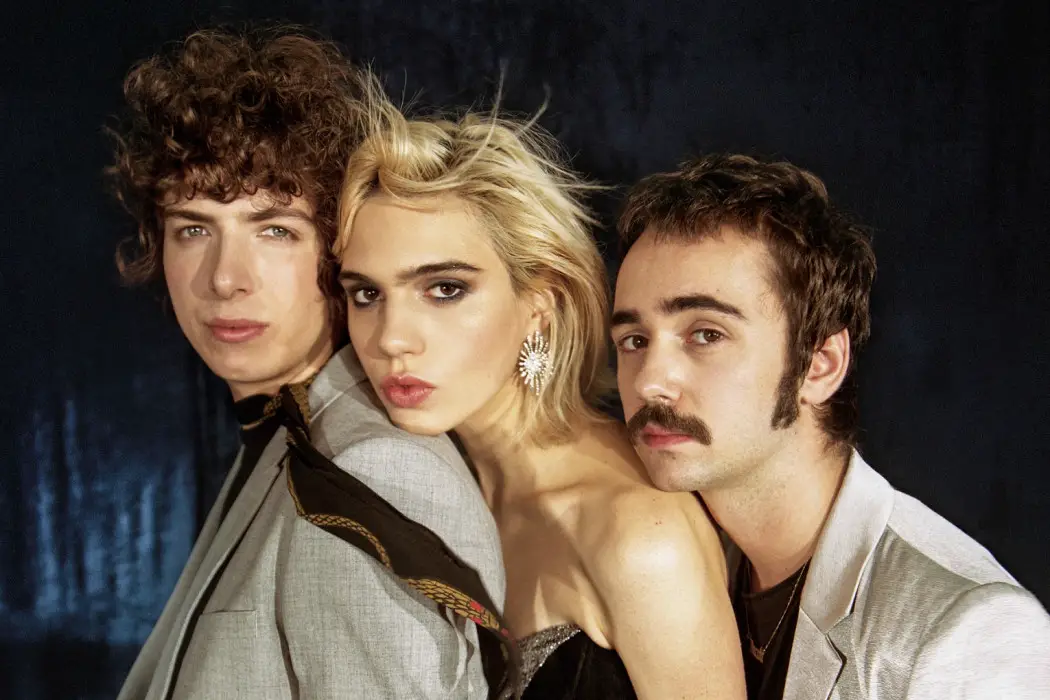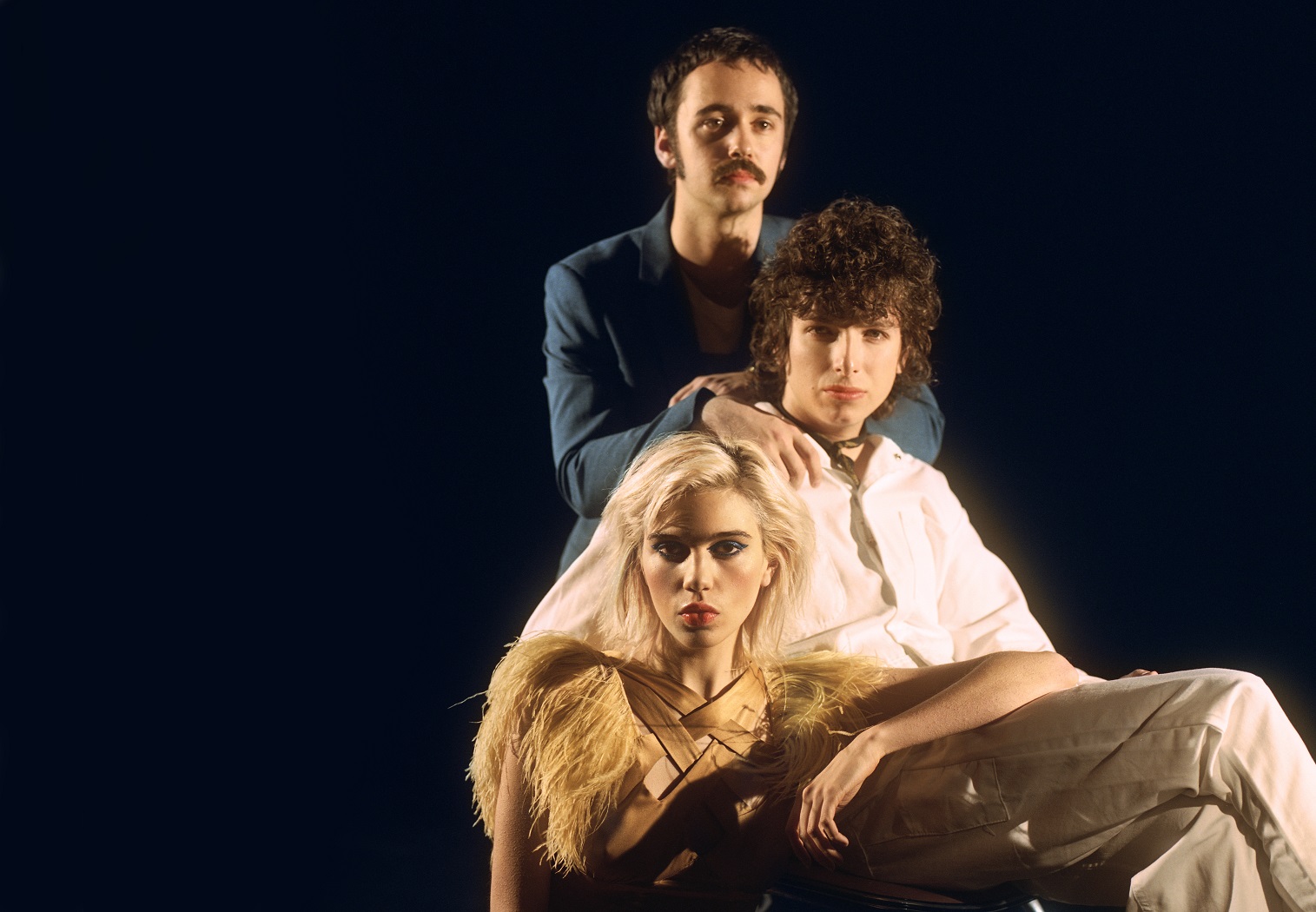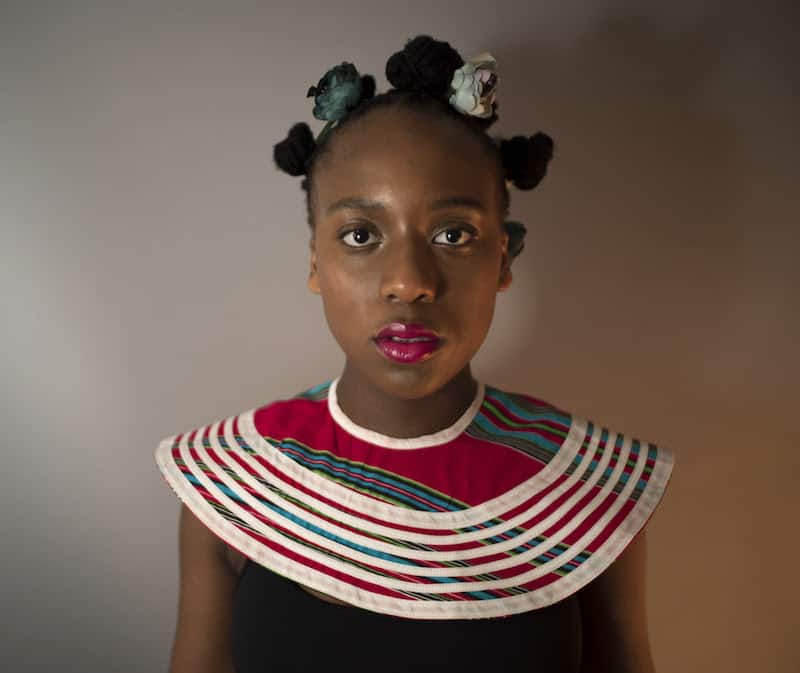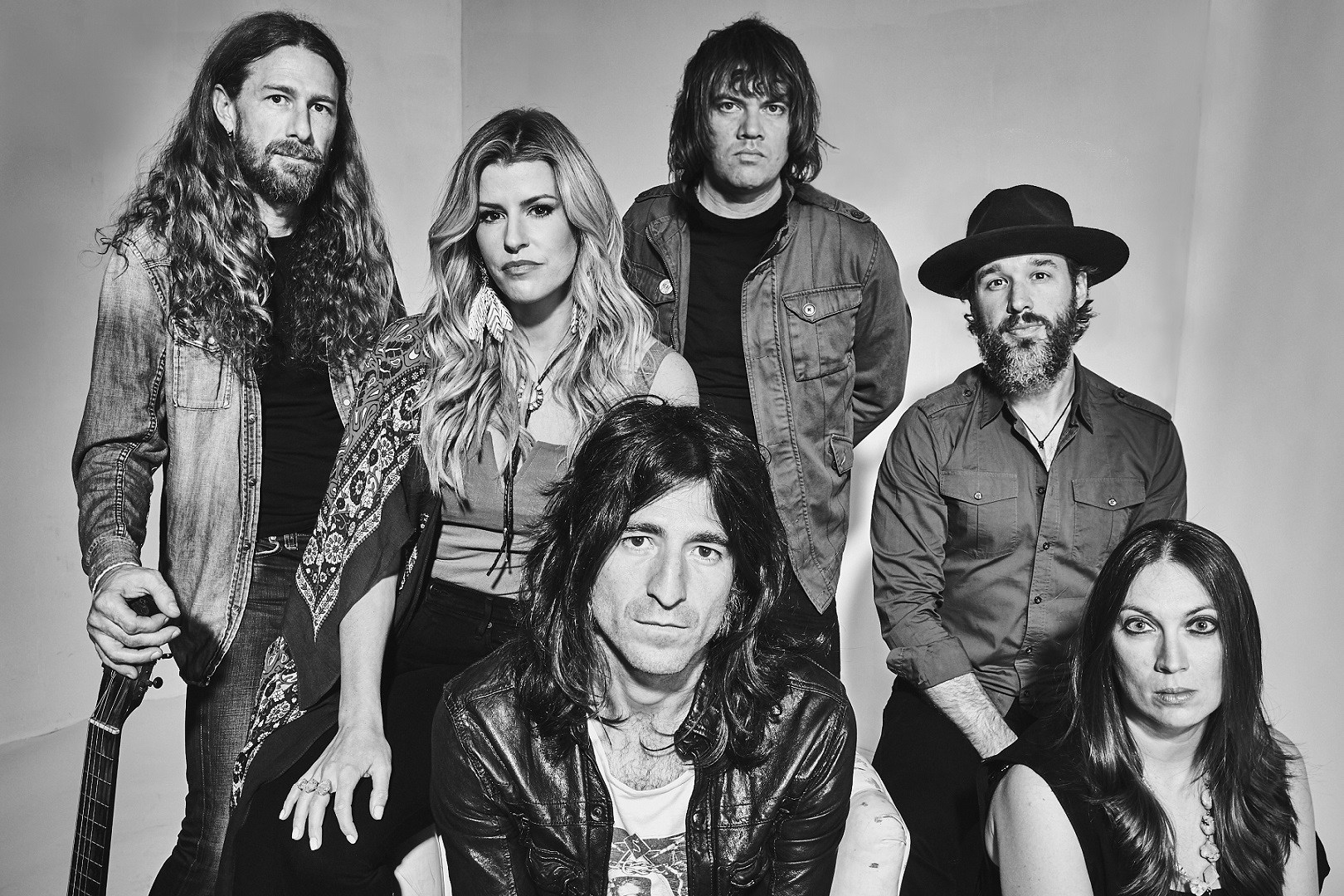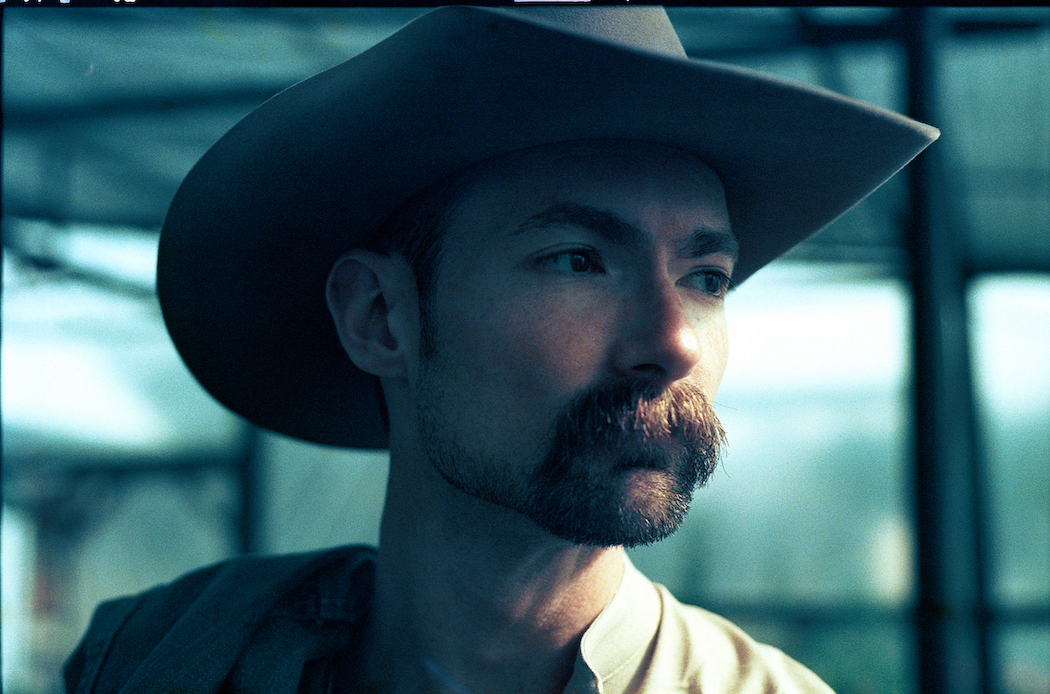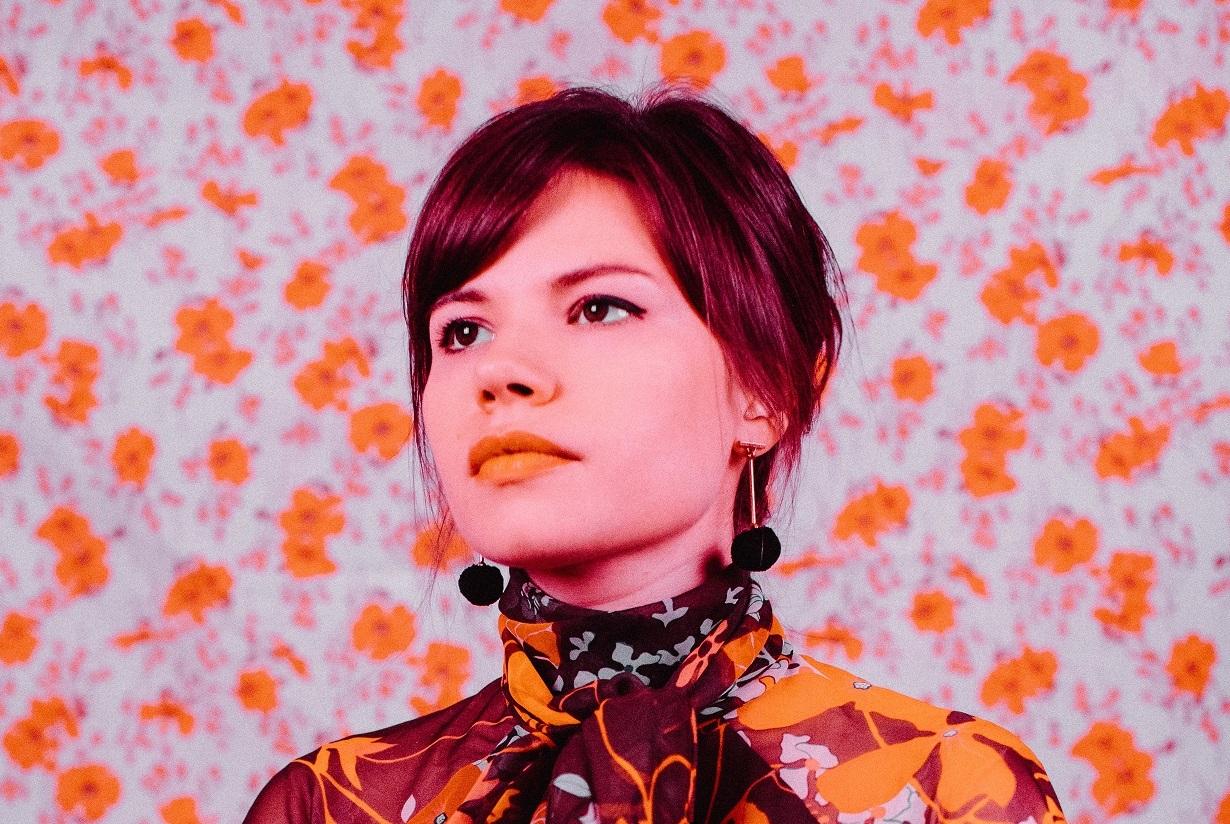Sunflower Bean’s Julia Cumming recounts the moment she knew she would join Sunflower Bean and using music as a means to grapple with her surroundings and what is stirring within herself.
— —
In a New York City bodega, some five years ago, three high school students witnessed a pseudo convenience store employee turned door man bolt for an exit, shoving wads of cash in his pockets as police sirens drew nearer and nearer. The NYPD had come to bust yet another New York DIY music space. Although Nick Kivlen and Jacob Faber were not able to take the stage that night, they were able to have a conversation with Julia Cumming about the new band they planned on creating, Sunflower Bean. At that moment Cumming knew her destiny was to be a part of that musical venture.
Fast-forward to 2018, the trio are all 22 years of age, hot on the heels of releasing their sophomore album, Twentytwo in Blue (March 2018). Human Ceremony, Sunflower Bean’s debut album, was the product of the band’s live performances. What came of that record was an impressive tour schedule, a lot of buzz, and opening slots turned to headlining showcases.
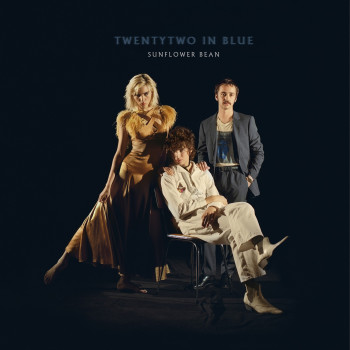
Twentytwo in Blue is something entirely unique of that. The followup LP suggests a vulnerability in the band, an exploration of what lies within them when the crowd retreats. The result? A sophisticated memoir of growth during a time of personal restlessness due to hectic touring schedules coupled with an era of political unrest.
The album navigates unanswerable questions with sultry ease. At times calls to action were hurled, like “Crisis Fest” and “Burn It,” but at others, the tempo eases to allow room for sonically rich textures and tones, like “Twentytwo” and “I Was a Fool.” Notes of ’60s psychedelia mesh with ’70s metal to brim Twentytwo in Blue full of lush breakdowns and transitions.
In a true testament of unyielding maturation, Cumming sings, “the past is the past for a reason,” on “Memoria.” Sunflower Bean have rerouted, full speed ahead into the horizon of, not what is to come, but what they will cultivate for themselves creatively through art and music.
A CONVERSATION WITH SUNFLOWER BEAN
Atwood Magazine: Hey Julia, how are you?
Julia Cumming: Hi! I’m good. How are you?
I’m doing great. How’s the UK treating you so far?
Cumming: It’s great. Today’s a beautiful, sunny day, nice weather, so we’re all really happy.
So, this is a pretty long tour. You guys are touring until the beginning of July, but you get a little break in between at home in Brooklyn. What’s it like to return to New York after or between tours?
Cumming: It’s great. I mean, my favorite thing to do in New York City especially is just to walk around and listen to music and just have my headphones on. Hopefully, it’s one of those nice New York days where it’s not too hot, it’s not too cold. Hopefully, when we get back there we’ll get to do a little bit of that, but it doesn’t exactly feel sometimes like we live anywhere. It kind of feels like a switch happens where it’s not like I’m touring and then I’m home. This kind of just is life. So, you know, that’s kind of definitely a mental switch. When I’m home I’m just happy to be there, but I try to be a little zen about it because I know I’m going to leave fairly soon.
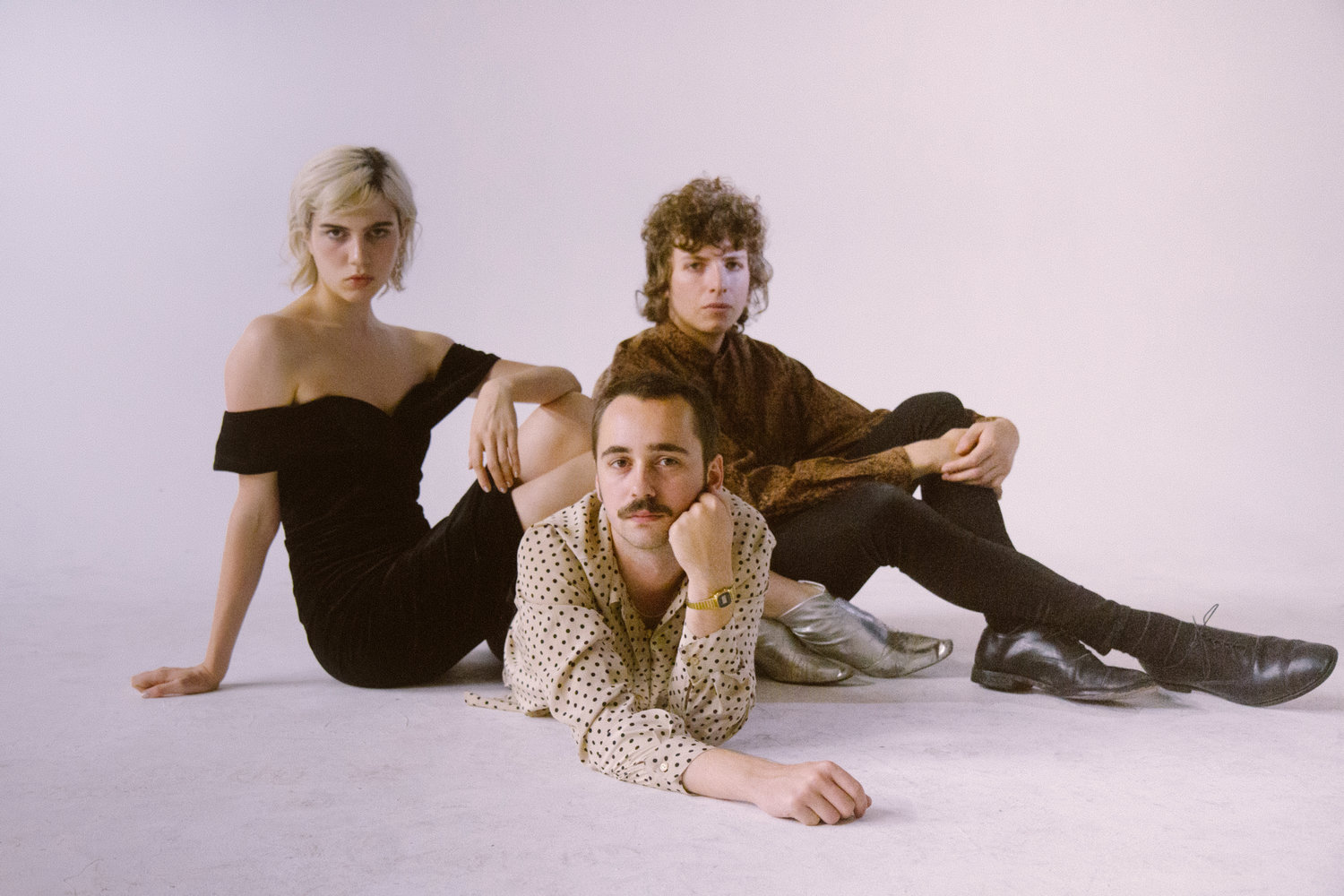
I’m sure! You guys have been touring like crazy since Human Ceremony came out a couple years ago.
Cumming: I think it’s also the way that music is structured now, where because of streaming and just because of everything, you sort of need to be on the road constantly and it’s just a way that musicians are kind of adapting to the current musical climate.
Absolutely. For Sunflower Bean specifically you can see that there’s a lot of musical and creative growth between Twentytwo In Blue and Human Ceremony, besides purely getting older, is there anything specifically that you can directly attribute that growth to that inspired this new record?
Cumming: I think it’s a change in mindset in the way that we used to kind of have the songs built around the live show because we came out of this New York DIY scene. We played the most shows out of any band between 2014 and 2015 in New York our first year. When you’re doing something for the live set it’s really about building that energy, but I think what we realized after touring so much was that there were more sides of us that we wanted to show, rather than just this live thing because I feel like we know how to mosh, we know how to stage dive, and we know how to scream. You really want to see who you are when you turn the lights off, what you really want to sound like, who you really want to be. That is more of a change of artistic mindset, rather than growth. I think we just wanted the songs to be able to stand on their own.
I get that because there’s a lot more political messages, I find, in Twentytwo in Blue, like “Crises Fest” and the track “Twentytwo.” I think that it’s related, in a way, to our current political climate, do you find that that’s the case? Are there some issues that you are passionate about that you wanted to put into the music?
Cumming: Yeah. We use music and songwriting as a way to reckon with the world that we’re living in. A lot of times on the record we were having a lot of natural responses. I feel like it’s interesting that you hear politics in “Twentytwo.” I definitely agree with that, but also more so that it’s almost more related to this idea of blossoming and not blossoming, the human experience. You’re sort of thrown into this and you don’t really know if you’ve asked for it. You kind of have a moment in the sun and the transience of this whole process that we’re living in. It was something that I was trying to deal with. And because of how people are looking and thinking about young women right now and how young women are talking about themselves and what their lives are like, the song fits into the #MeToo movement. I think that’s great, I didn’t mean for that to happen with that song, it was just what I was going through. You know what I mean? So, that’s what’s cool too. There’s a lot of intention, there’s a lot of remarks, there’s a lot of responding to what’s going on, but all of it I think was really just naturally happening for us and I hope that means that we’re tuned into what it means to be a creative person in 2018.
We use music and songwriting as a way to reckon with the world that we’re living in.
I’m sure a lot of people come to you with their perception of the song and how it made them feel and you're like, “Whoa, that’s not my intention but great.”
Cumming: Your response, any response, all of them are intentional. That’s definitely, I think, the correct response to this song, and also whatever response is, in its own way, correct because it really is a communicative process. I feel like that’s why people are so anxious about their own records being out, because you can make it in your house and whatever, that’s nice, but I feel like a song is finally a song when there’s a record of it and people can hear it and react to it. When we play live we’re receiving all of the reactions of the people at the show. Sometimes people forget that there’s that back and forth and we are either rejuvenated or feel differently from people’s responses from the show. It’s all very alive.
I feel like a song is finally a song when there’s a record of it and people can hear it and react to it.
How has the reaction been on this tour to the new songs? Do you find a lot of people are yelling out for specific songs?
Cumming: Absolutely! I definitely noticed it with “Twentytwo.” We’ve been playing “Sinking Sands” on the tour, it comes on later on the record, but people still know that one and get really excited to hear it and see it. And “Puppet Strings.” Every day, the more days that the record has been out, the more response we’re seeing. That’s really, really cool.
What was the most challenging song to write on the new record?
Cumming: I have to think about that. I don’t know if there’s a way to answer that. I think that each one had their own certain challenges. One thing that sticks out in my mind is “Oh No, Bye Bye” as far as probably the most changes we made later in the game, very close to the record being finished. We were still working on it a lot. It’s obviously our most experimental of the songs. I think that that was really a choice we were trying to make because we wanted the tones and sounds on the record to be unique and each moment to be really full. We worked until, basically, the last moment to make sure that that one was itself to the utmost degree.
I loved the new album. I thought there was a lot of growth and I definitely got a little emotional during some of the tracks. I felt like it was really beautiful, but it was also super light and fun at the same time. It had this contrasting dynamic to each individual element in the album.
Cumming: Thank you so much. I’m glad. That’s what we were really going for. A lot of our favorite music is very natural and even full of imperfections. I think that we tried to let the feeling and the attitude and the identity of the song be stronger than the idea of trying to make something absolutely perfect. We wanted it to incite the reactions that you’re saying you’re having, so I feel really happy every time I hear that from people.
In your earlier stages, did you find that there was a good response to your music because you were sort of snubbing the typical Brooklyn Bedroom Pop genre that’s been dominating a lot of the indie scene or do you think when you first started releasing music people were less receptive to it because it was something different?
Cumming: I don’t think we ever meant to snub anything. I think we were always following what we were really looking for in a band and what we really wanted to be. In certain ways it can be difficult because we’re not following any trend, so it’s hard to find where we fit in in relation to other bands. But at the same, it hasn’t really ever bothered us or stopped us from doing anything. I don’t see why it would start now. We like bands that do similar things philosophically or writers that we admire. People that are doing cool stuff with rock and have a lot of personality. That would kind of be where we fit in.
I think that we tried to let the feeling, attitude and identity of the song be stronger than the idea of trying to make something absolutely perfect.
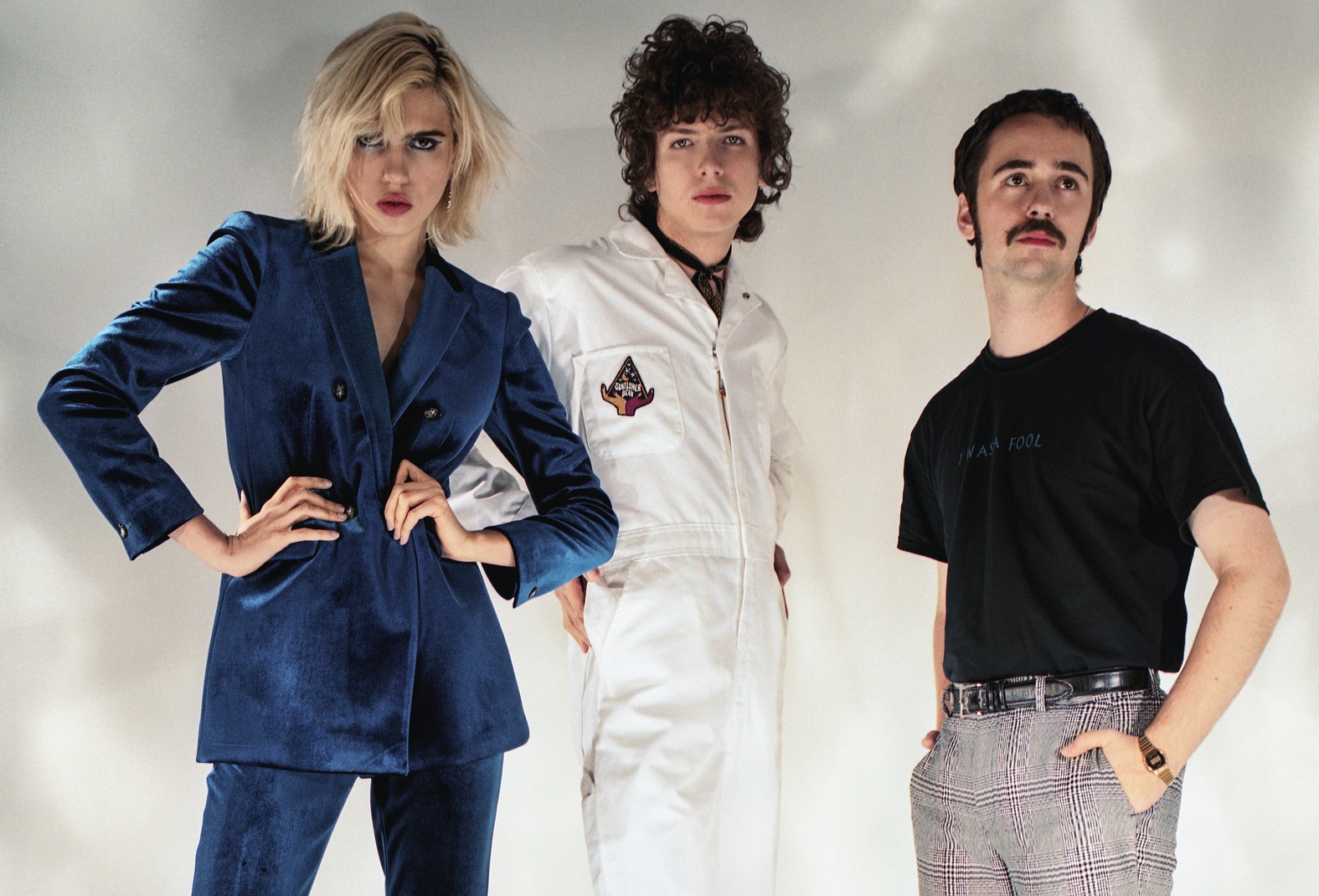
You mentioned this earlier, but you guys got your start in New York’s ever-changing DIY scene. Did that help shape Sunflower Bean’s approach to the music or towards the music industry in general?
Cumming: Absolutely. This is something we all talk about, but we wouldn’t have met without that scene. I think one of the reasons why DIY is so important, literally, is because there’s no college degree for this. There’s no written plan. It’s not like you go to school and you follow certain steps. I mean, there’s certain things, but not really. So, DIY really made it possible for you to say, “I’m here, this is what I’m doing, this is how I’m starting out. I don’t know all the answers, but I’m in the mix.” The first time that I hung out with Nick and Jacob, I knew them from around and we were all friends, but the place that we really spoke was a venue called Living Bread that in the day was a Bodega Deli and they would move the shelves to the side and they would do shows in the basement. I had gone there for a Grimes after party, maybe a year beforehand, and I got to dance near her and that was insane. Then I got to see the guys play, but you know what, they didn’t actually end up playing that night because it was the last show that ever happened there. I remember the door guy running off with the money box and the police coming. It was awesome.
What a cool way to create a band out of that.
Cumming: It was right after that that Nick said to me, “by the way I’m starting a band and it’s called Sunflower Bean.” And I had this weird feeling, “Oh my God, I’m going to join that band. I don’t know how I feel about that.” And then I did and here I am on the brightened pier a few years later.
I’ve seen the scene change so much, the music industry in general, over the last ten years, especially being a woman. I don’t know if you had a female instrumentalist or front woman or someone that you kind of attached to that you went, “Oh yeah, okay, maybe I can do this too.”
Cumming: That’s definitely an important question and I almost wish that I had a better answer for you. I think being a part of DIY, even my friend Lucia, who was the guitarist in a band that I met Nick and Jacob in, was an inspiration to me. I feel like the most inspiring thing was just seeing a young woman doing music and it being normal. Do you know what I mean? I feel like that’s kind of the spot that we’re in now where it wasn’t like I wanted to see someone that’s doing the most insane thing I had ever seen. I just wanted to see a woman making music and have the chance to do that in a normal way. All the women, all the bass players, guitarists, singers in the New York DIY scene were really special for me.
I think that’s a great answer and that’s a real answer to that question. I like it more than you saying something like Kathleen Hanna or whatever, than saying something obvious. It is important to see people and have it be normal. Really you don’t see that separation anymore. Now you can look around at a venue and see women on the bill, women doing sound, women at the door. That wasn’t really a thing when I was younger, so I think that’s an awesome answer. I’m really happy to see that changing so much.
Cumming: I started playing in bands when I was 13 and now I’m 22, so 9 years basically that I’ve been in music and in venues in various degrees. Not only was I a young woman doing this, I was a kid really. I was a woman and a kid. I was trying to fight for kids being taken seriously [laughs] as musicians, which was pretty crazy and I wasn’t very good. It took me a long time to get good, but the questions that I’ve been asked over the years have changed. Something that I kind of say sometimes is that I hope that if I have a daughter and she makes music, maybe inevitably, that the questions she’s asked would be different than the ones I’m asked, because I know that I’m asked ones that are different than women making music in the ’90s. You know that I mean? I try to be really hopeful because I think that we’re getting really close. It’s like you said, I think it’s so much more normal to exist in this space and I’m excited for having women in music being normal. It’s awesome to be celebrated, but it would be even more awesome to just be given the same thoughtfulness as when a dude does it.
It’s awesome to be celebrated, but it would be even more awesome to just be given the same thoughtfulness as when a dude does it.
All just be on the same platform.
Cumming: Yeah.
It’s changing and it’s exciting to see it change. I like going to shows and seeing a little bit of diversity up on stage. So, I’m thankful for you.
Cumming: Aw!
What is your favorite venue to play in NYC and what is your favorite venue to see a show at?
Cumming: Probably Bowery Ballroom. For a long time I got to open there, like four or five times before we got to headline our own show. We’re headlining there April 26. We’re doing a 7 piece band, we’re doing some cool stuff. It’s going to be insanity.
Very cool!
Cumming: You should come if you’re in the city.
Yeah, I live in Brooklyn. I will definitely come out to that.
Cumming: Yeah, come! So I think that’s my favorite for both. I’ve seen some really special shows there. As a New Yorker to play at that venue, like the first time we sold it out I was like, “I’ve done it. I’ve made it. I can die now. I don’t have to play any other show. I’ve sold out Bowery Ballroom for my own show and that’s it. If I die tomorrow I would think that I did it.” So, that’s pretty cool.
It’s exciting! A 7 piece band, that’s so great.
Cumming: It’s going to be insanity.
Here is where our recording cut out. Sunflower Bean is on tour in Europe, so we had to shrug our shoulders and do with what may. Luckily the conversation remaining was minimal from this point on. What we do know is that we can expect more music from Sunflower Bean in the future: Music is the inescapable path to which they are fated.
— —
:: stream/purchase Twentytwo In Blue here ::
— — — —
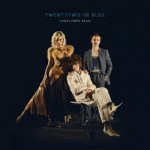
Connect to Sunflower Bean on
Facebook, Twitter, Instagram
Discover new music on Atwood Magazine
? © Andy DeLuca

